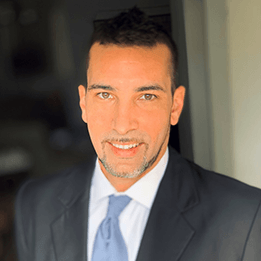

Associate corporate secretary, executive general counsel global corporate affairs team | Teva Pharmaceuticals






Asaf Alkoby
Associate corporate secretary, executive general counsel global corporate affairs team | Teva Pharmaceuticals
Focus On…Millennials – a paradigm shift in the legal profession
Connectivity, personal technology, automation and globalisation have contributed to significant changes the legal industry is facing. Over the past decade, enforcement by regulators has been growing, the legal environment has become more litigious, and the use of technology is deeply embedded in a lawyer’s work. New trends have emerged along with the arrival of generation Z and millennials to the workforce and the impact of the Covid-19 pandemic. Thus, industry veterans should prepare for the integration of the millennials into the workplace by understanding some of the core beliefs that shape the younger generations:
A sense of purpose – the millennials do not just work for the sake of working. They expect their contribution will be a part of something bigger, with which they sympathise. Therefore, legal managers should only allocate tasks if they provide junior lawyers with the bigger picture and emphasise its importance. Moreover, managers should instil a strong culture and team pride to boost employees’ motivation.
Millennials drive social responsibility — we are now witnessing a surge of socially responsible investors, ESG indexes, and massive pressure on corporations to become more ethical and transparent. Hence, legal departments should promote a culture of volunteering and pro-bono work and be more conscious of the working environment: a paperless, sun-lit, green office would be much more appealing to a millennial than the traditional oak and carpet offices.
Diversity – while this significant trend of diversifying workforces has been going on for many years, it has risen to a new level with millennials. Each person is unique, and there is no ‘one size fits all’ anymore. Department managers who wish to attract millennial talent must diversify the workforce carefully and more importantly, emphasise the inclusiveness of any individual regardless of gender, race, colour, sexual orientation or religion.
Work-life balance – one of the fundamental changes we witness is the rising importance of having balanced working habits. Following the Covid-19 pandemic, hybrid workplace optionality has become essential for many young lawyers. Legal departments today should continue to be flexible with their demand for office ‘face time’ and allow for more hybrid schedules and lifestyle activities.
The changes described above are happening and are essential to recognise. That said, the most significant aspect that should be emphasised with young lawyers is a personal judgment. Today, we have many technologies that aim to replace much of lawyers’ work: AI software and databases which can review NDAs, assist in the discovery, and even analyse litigation chances. With the rise of these technologies, lawyers may soon be more occupied with software management rather than utilising legal judgment. A counsel who uses AI software to review NDAs will not be able to master complicated agreements without first understanding the basics of an NDA. Therefore, it is our duty towards the millennials to explain each element in their work and to create a safe space for judgment calls, for them to master those legal intricacies that technology cannot replace.